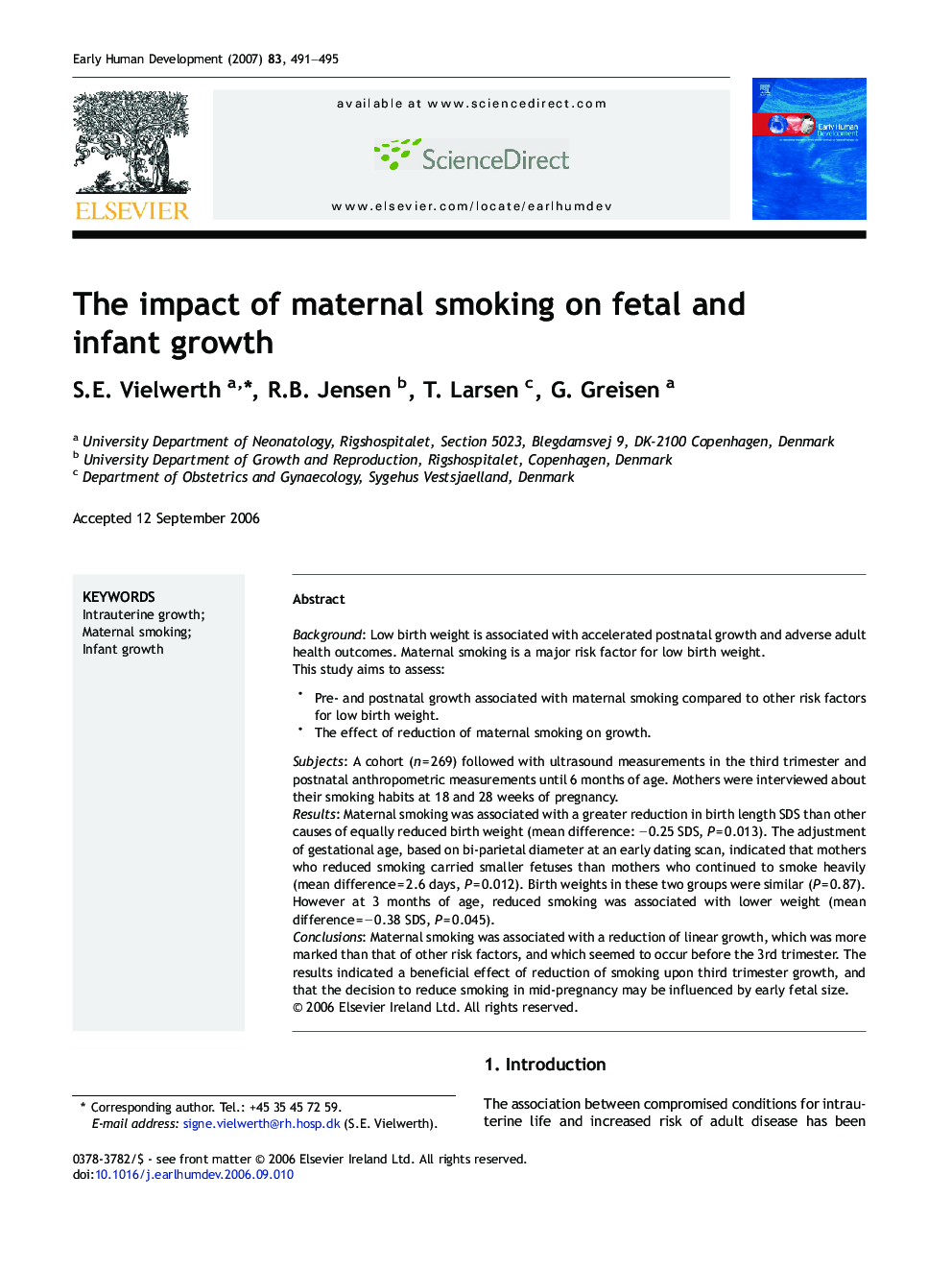| Article ID | Journal | Published Year | Pages | File Type |
|---|---|---|---|---|
| 3918612 | Early Human Development | 2007 | 5 Pages |
Background:Low birth weight is associated with accelerated postnatal growth and adverse adult health outcomes. Maternal smoking is a major risk factor for low birth weight.This study aims to assess:•Pre- and postnatal growth associated with maternal smoking compared to other risk factors for low birth weight.•The effect of reduction of maternal smoking on growth.Subjects:A cohort (n = 269) followed with ultrasound measurements in the third trimester and postnatal anthropometric measurements until 6 months of age. Mothers were interviewed about their smoking habits at 18 and 28 weeks of pregnancy.Results:Maternal smoking was associated with a greater reduction in birth length SDS than other causes of equally reduced birth weight (mean difference: − 0.25 SDS, P = 0.013). The adjustment of gestational age, based on bi-parietal diameter at an early dating scan, indicated that mothers who reduced smoking carried smaller fetuses than mothers who continued to smoke heavily (mean difference = 2.6 days, P = 0.012). Birth weights in these two groups were similar (P = 0.87). However at 3 months of age, reduced smoking was associated with lower weight (mean difference = − 0.38 SDS, P = 0.045).Conclusions:Maternal smoking was associated with a reduction of linear growth, which was more marked than that of other risk factors, and which seemed to occur before the 3rd trimester. The results indicated a beneficial effect of reduction of smoking upon third trimester growth, and that the decision to reduce smoking in mid-pregnancy may be influenced by early fetal size.
